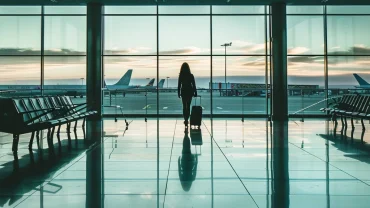Navigating the Skies: A Comprehensive Guide to the Refundability of Flight Tickets in India
Introduction:
The world of air travel is a dynamic and often unpredictable realm, filled with the excitement of exploration and the occasional need for flexibility. As travelers embark on their journeys, the question of whether flight tickets are refundable in India becomes a pivotal consideration. In this comprehensive guide, we delve into the nuances of airline refund policies in India, shedding light on the factors that influence refundability, the types of tickets that offer flexibility, and the considerations that travelers should keep in mind.
Understanding the Basics of Flight Ticket Refundability:
- Refundable vs. Non-Refundable Tickets:
- The first step in unraveling the refundability puzzle is distinguishing between refundable and non-refundable tickets. Refundable tickets are typically more expensive but provide the flexibility to cancel your reservation and receive a full or partial refund. Non-refundable tickets, on the other hand, are often more affordable but come with more stringent cancellation policies.
- Fare Class and Refundability:
- The fare class of your ticket plays a crucial role in determining its refundability. Airlines categorize tickets into various fare classes, each with its own set of rules and conditions. Premium cabins or higher fare classes often offer more lenient refund policies compared to economy class or lower-tier fares.
Factors Influencing Airline Ticket Refund Policies in India:
- Airline-Specific Policies:
- Each airline in India has its own set of refund policies. These policies can vary significantly, so it’s crucial for travelers to familiarize themselves with the terms and conditions of the airline they are flying with.
- Booking Channels and Third-Party Agencies:
- The channel through which you book your flight can impact the refundability of your ticket. Tickets purchased directly from the airline may have different refund conditions than those booked through third-party travel agencies. It’s essential to be aware of the specific terms associated with your chosen booking channel.
- Domestic vs. International Flights:
- Refund policies may also differ for domestic and international flights. International travel often involves more complex considerations, such as visa requirements and varying regulations, which can influence the refundability of tickets.
Types of Refundable Tickets:
- Fully Refundable Tickets:
- Some airlines in India offer fully refundable tickets, providing travelers with the option to cancel their reservation and receive a complete refund. While these tickets come at a higher cost, they provide unparalleled flexibility.
- Partially Refundable Tickets:
- Partially refundable tickets allow travelers to receive a portion of their fare back upon cancellation. The refund amount may vary based on factors such as the timing of the cancellation and the fare class.
Exceptions and Special Circumstances:
- Medical Emergencies and Unforeseen Events:
- Airlines in India may make exceptions to their standard refund policies in the case of medical emergencies or unforeseen events. Documentation, such as a medical certificate, may be required to qualify for such exceptions.
- Flight Cancellations by the Airline:
- If an airline cancels a flight, travelers are usually entitled to a full refund or the option to rebook on a later flight. This holds true for both domestic and international flights.
Tips for Navigating Refund Policies in India:
- Read and Understand the Fine Print:
- Thoroughly read the terms and conditions of your ticket before making a purchase. Understanding the specific refund policies and any associated fees is essential for making informed decisions.
- Consider Travel Insurance:
- Investing in travel insurance can provide an added layer of protection. Many travel insurance policies cover trip cancellations due to unforeseen circumstances, offering peace of mind to travelers.
- Booking Well in Advance:
- Generally, booking your flight well in advance increases the likelihood of securing a more refundable fare. Last-minute bookings may be subject to stricter cancellation policies.
- Direct Communication with the Airline:
- In case of uncertainties or special circumstances, it’s advisable to communicate directly with the airline. Airline representatives may offer guidance and potential solutions based on your specific situation.
Legal Framework and Regulatory Considerations:
Understanding the legal and regulatory landscape adds an additional layer of insight into the refundability of flight tickets in India.
- DGCA Guidelines:
- The Directorate General of Civil Aviation (DGCA) in India provides guidelines and regulations governing various aspects of air travel. While specific refund policies are often left to the discretion of individual airlines, DGCA guidelines may influence the general framework within which these policies operate.
- Consumer Rights:
- As consumers, passengers in India have certain rights when it comes to flight cancellations and delays. Airlines are expected to adhere to these rights, providing compensation or alternative arrangements in the event of disruptions. Familiarizing yourself with these rights can be beneficial when navigating refund issues.
Flexibility Amidst the Pandemic:
The global COVID-19 pandemic has brought about unprecedented challenges in the travel industry. Airlines worldwide, including those in India, have adapted their refund policies to accommodate the uncertainties associated with the pandemic.
- Flexible Booking Options:
- Many airlines have introduced more flexible booking options, allowing passengers to make changes or cancel reservations with reduced or waived fees. These temporary measures aim to provide travelers with greater confidence amid evolving travel restrictions.
- COVID-19 Specific Considerations:
- Some airlines have implemented specific policies for passengers directly affected by COVID-19, such as illness or government-imposed travel restrictions. These policies may include more lenient refund conditions or the provision of travel vouchers.
Navigating Refund Processes:
- Online Refund Requests:
- Most airlines in India facilitate the submission of refund requests through their online platforms. Travelers can typically initiate the process by logging into their accounts on the airline’s website and following the designated refund request procedures.
- Documentation Requirements:
- When requesting a refund, be prepared to provide any necessary documentation, such as medical certificates or proof of unforeseen circumstances. Ensuring that you have the required documentation can expedite the refund process.
Future Trends and Emerging Considerations:
As the travel industry continues to evolve, it’s essential to stay informed about emerging trends and considerations that may impact the refundability of flight tickets in India.
- Technological Innovations:
- Advances in technology may lead to more streamlined refund processes and enhanced communication between passengers and airlines. Automated systems and artificial intelligence could play a role in providing quicker and more efficient solutions.
- Environmental and Economic Factors:
- Economic downturns or environmental factors, such as natural disasters, can influence the overall landscape of air travel. These external factors may prompt airlines to reevaluate and adjust their refund policies to align with the evolving needs of passengers.
Conclusion:
In the dynamic world of air travel, understanding the refundability of flight tickets in India requires a multifaceted approach. From airline-specific policies to legal considerations, pandemic-related adaptations, and future trends, travelers can navigate the complexities by staying informed and proactive. By arming themselves with knowledge and considering various factors, passengers can approach their journeys with confidence, knowing they are well-equipped to handle the challenges and uncertainties that may arise. Safe travels and smooth refund experiences await those who approach their travel plans with diligence and awareness.



Comment (0)